

Last Sunday, the Chief Justice of India, Justice T.S. Thakur, made an emotional plea to the Executive to increase the number of judges and fill up the vacant posts to fix the issue of the severe shortage of judges in India. A visibly crestfallen man, the Chief Justice spoke in detail about the challenges faced […]
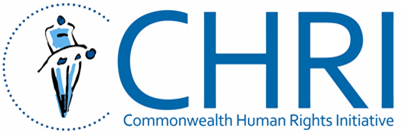
We wish to share with you the following report from the Commonwealth Human Rights Initiative(CHRI), an organisation working on promoting ‘the practical realisation of Human Rights in the countries of the Commonwealth’ by focussing on ‘building and reforming systems of governance which are essential for the protection and promotion of Human Rights’. The CHRI is […]
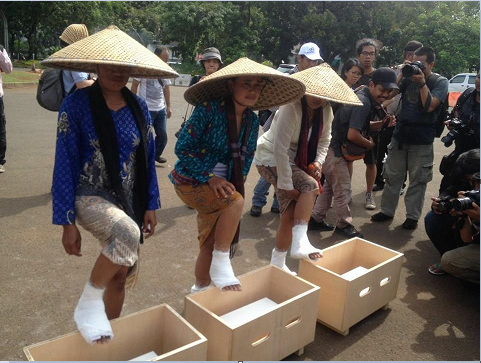
This week Just Asia begins with nine mothers cementing their feet in front of the Indonesian Presidential Palace on April 12. The mothers are calling on President Widodo to stop the development of a cement factory in Rembang, Central Java, which will damage a resource rich environment. Just Asia speaks to Mr. Ki Bagus Hadi […]
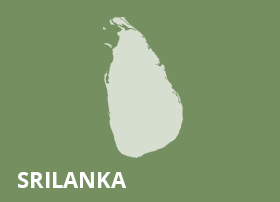
What would happen in a society where there is no sense that murder is a grave wrong to be prevented by the state and the people? The same thing could be asked about rape, sexual abuse of women, children or anyone else, about robbery and theft, extortion and drug trafficking. Many more wrongs against individuals […]
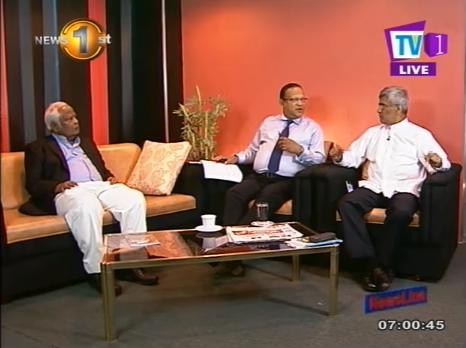
The Asian Human Rights Commission (AHRC) wishes to forward the interview by Mr. Basil Fernando, Director – Policies & Programmes of the AHRC in News Line TV 1. In the interview Mr. Fernando speaks about the importance of re-establishing a criminal justice framework in Sri Lanka that is capable of protecting all freedoms of the people. In […]

A group of people at a workshop identified the following as the basic adverse consequences of delays in litigation: • It changes the way litigation is conducted and encourages exchanging favors, as well as lying. • It encourages using criminals and other third parties to settle disputes. • Many judges preside over the same trial […]
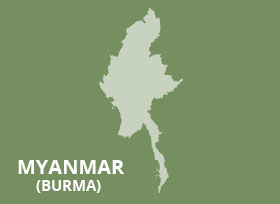
The Asian Human Right Commission (AHRC) welcomes the release of political prisoners and student protesters in Burma. This is another positive development, and the AHRC will continue to monitor developments and work closely on criminal justice reform in the transitional period toward democracy. On 17 April 2016, Burmese New Year Day, the President of Myanmar, […]
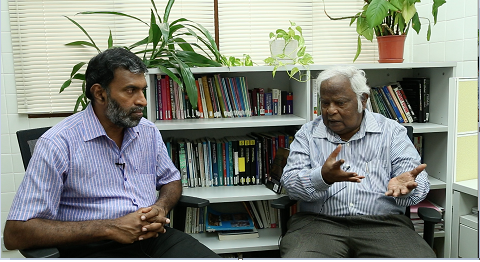
We are sharing with you a discussion conducted between Dr. U C P Perera, Senior Lecturer, Faculty of Medicine, and Head, Department of Forensic Medicine, University of Ruhuna, Sri Lanka, who has also been involved in the investigations into the Chemmanimass grave, and Mr. Basil Fernando, Director Policy and Programmes, Asian Human Rights Commission, Hong […]

After decades of engagement across Asia, and in particular, in Sri Lanka and other South Asian countries, seeking to learn about and confront the most fundamental problems plaguing our societies, the Asian Human Rights Commission has arrived at a juncture where both the root malady can be diagnosed and ways forward for society can be […]
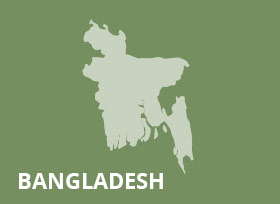
A Joint Statement by the Asian Human Rights Commission, FIDH, and the World Organisation Against Torture (OMCT) The Bangladesh Government’s attempts to silence free speech continue. Several senior journalists and writers are facing trumped up charges and arbitrary detention for having published stories that are critical of the authorities. Mr. Shafik Rehman, an 81-year-old author, anti-death […]
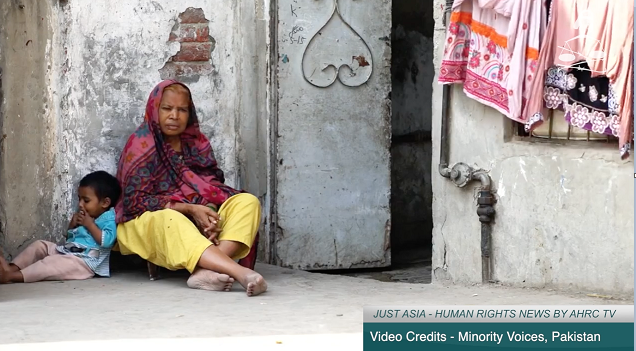
This episode of Just Asia begins with Indonesia, where a public protest called for the dissolution of Indonesia’s Anti-Terror Police Unit. The protest followed the death of Mr. Siyono, one day after being arrested by the Police Unit on March 10. Although the police claimed Siyono died from fighting police personnel, an independent autopsy revealed […]

By Urmila Pullat On 3 April 2016, four men died of asphyxiation in a clogged manhole in Dodballapur, near Bangalore. Two of these men were manual scavengers, while the other two were passers-by who died while trying to save them. Manual scavenging is the scourge of India, mired in complex issues of caste, poverty, class […]

This article is an attempt to demonstrate that the occurrence of serious crimes in Sri Lanka, could be drastically reduced by doubling the number of High Courts since only the High Courts have the jurisdiction to conduct trials regarding serious crimes. However, prolonged delays in adjudication has undermined the effectiveness of these courts acting towards […]

An oped from the Kathmandu Post forwarded by the Asian Human Rights Commission Despite Prime Minister KP Sharma Oli’s attempt to bully the National Human Rights Commission for its report at the 31st session of the UN Human Rights Council’s Universal Periodic Review (UPR), the Commission – represented by its chair Justice Anup Raj Sharma […]

On March 16, the United Nations Human Rights Council in Geneva reviewed the situation of human rights in Nepal and gave recommendations to improve it. The Council does that with every member of the UN in a process known as the Universal Periodic Review (UPR). Along with the government, non-government organizations and civil society organizations, […]

On 21 March 2016 the commander of the Kyaikmayaw Township Police Station in Burma, or Myanmar, sent a letter to Ma Thandar, the wife of Ko Par Gyi, whom soldiers killed in a remote part of the country’s east in 2014. As the Asian Human Rights Commission has described previously (AHRC-STM-075-2015, AHRC-UAC-145-2014), both a civilian court […]
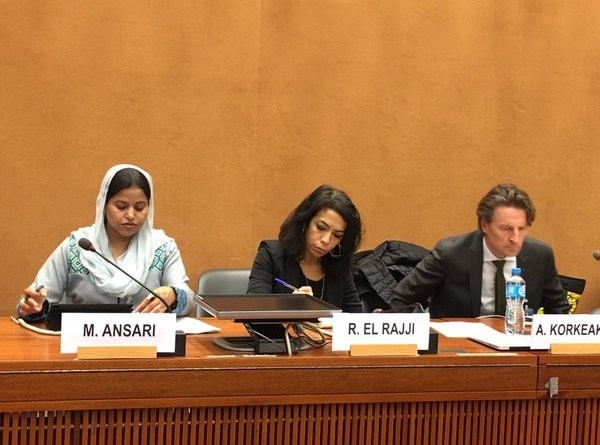
The Asian Human Rights Commission (AHRC) strongly objects to Nepali Prime Minister K.P. Sharma Oli’s summons to the National Human Rights Commission (NHRC) Chair Anup Raj Sharma, Commissioner Mohna Ansari and other members on 3 April 2016, where he sought clarification on Ansari’s statement during the Universal Periodic Review (UPR) held in Geneva in March. […]
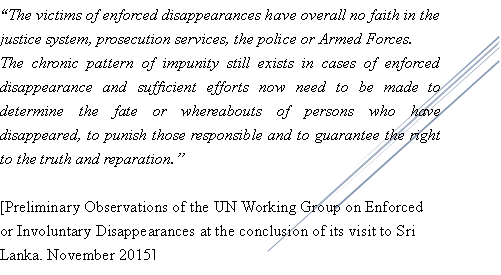
by Basil Fernando The existence of a mass grave may come to the notice of the public by many different ways; a statement by a witness made during a court hearing – as in the case of Chemmani Mass Graves: discoveries of some scattered remains of bones by workers when digging a site for constructions […]
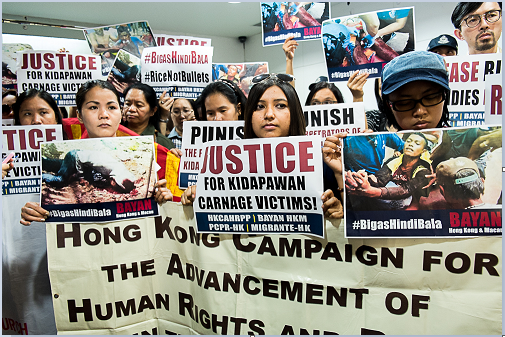
A Statement from Hong Kong Campaign for the Advancement of Human Rights and Peace in the Philippines (HKCAHRPP) forwarded by the Asian Human Rights Commission The starving and unarmed farmers of Kidapawan cried for rice. They were given bullets. Photo credit to HKCHRPP The Hong Kong Campaign for the Advancement of Human Rights and Peace […]

A Press Release from Thai Lawyers for Human Rights (TLHR) forwarded by the Asian Human Rights Commission (AHRC) On 26 March 2016, the National Council for Peace and Order (NCPO) has ordered military officers to arrest Mr. Worachai Hema, a former MP, at his residence. The officers did not inform his family and relatives of […]